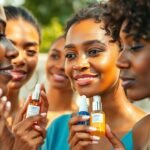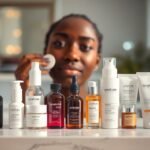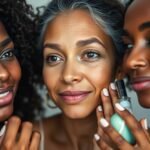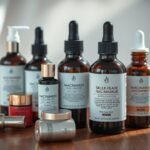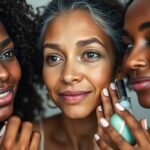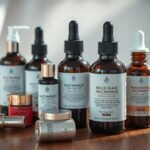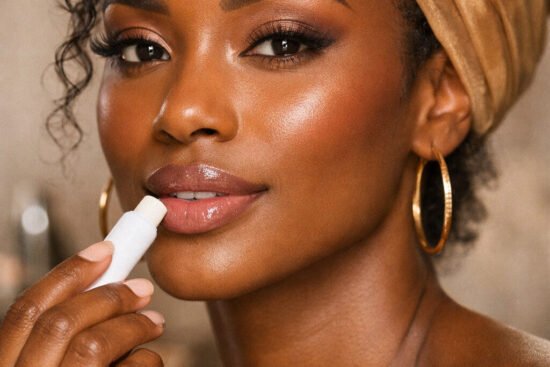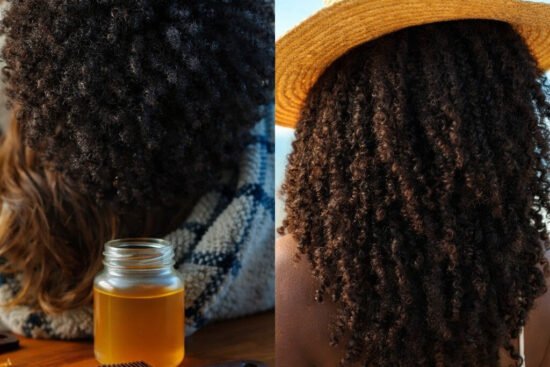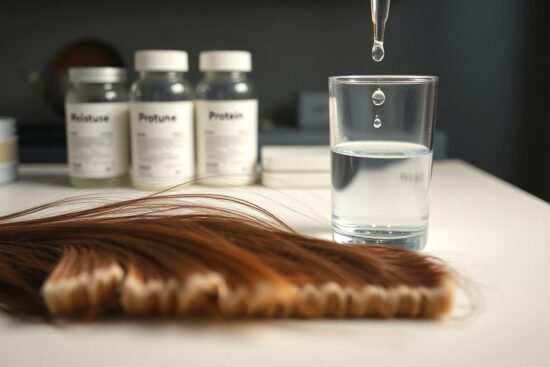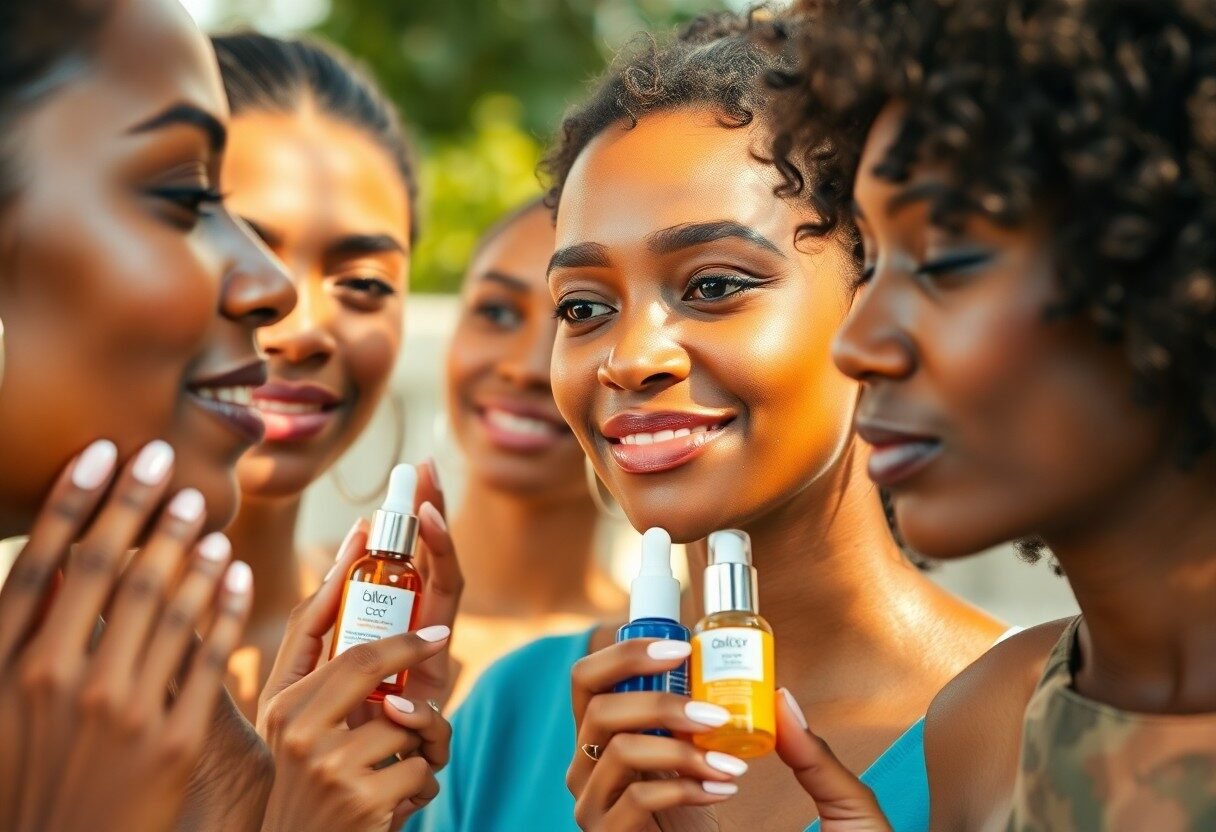
You may not realize that incorporating antioxidant-rich skincare products into your routine can significantly impact the battle against premature aging, especially for darker skin tones. As I explore the unique challenges that come with melanin-rich skin, I aim to show you how powerful antioxidants can help combat oxidative stress and environmental damage. These products not only enhance your skin’s radiance but also play a key role in maintaining your skin’s health by preventing discoloration and fine lines. Embrace the benefits, and let’s discuss how to refine your skincare regimen today.
Key Takeaways:
- Antioxidant-rich skincare products can help neutralize free radicals that contribute to skin aging, particularly in darker skin tones.
- Incorporating ingredients like vitamin C, vitamin E, and ferulic acid into your skincare routine can enhance skin radiance and even out skin tone.
- Due to higher levels of melanin, darker skin tones may show signs of aging differently, necessitating targeted antioxidant formulations.
- Regular use of antioxidants can improve skin elasticity and hydrate the skin, leading to a more youthful appearance over time.
- Antioxidants may help combat the effects of environmental stressors, such as pollution and UV exposure, which are detrimental to skin health.
- Choosing the right antioxidants for individual skin types is important, as some formulations may suit darker skin tones better than others.
- Consistency in applying antioxidant-rich products, along with sun protection, plays a vital role in maintaining healthy, youthful skin in darker complexions.
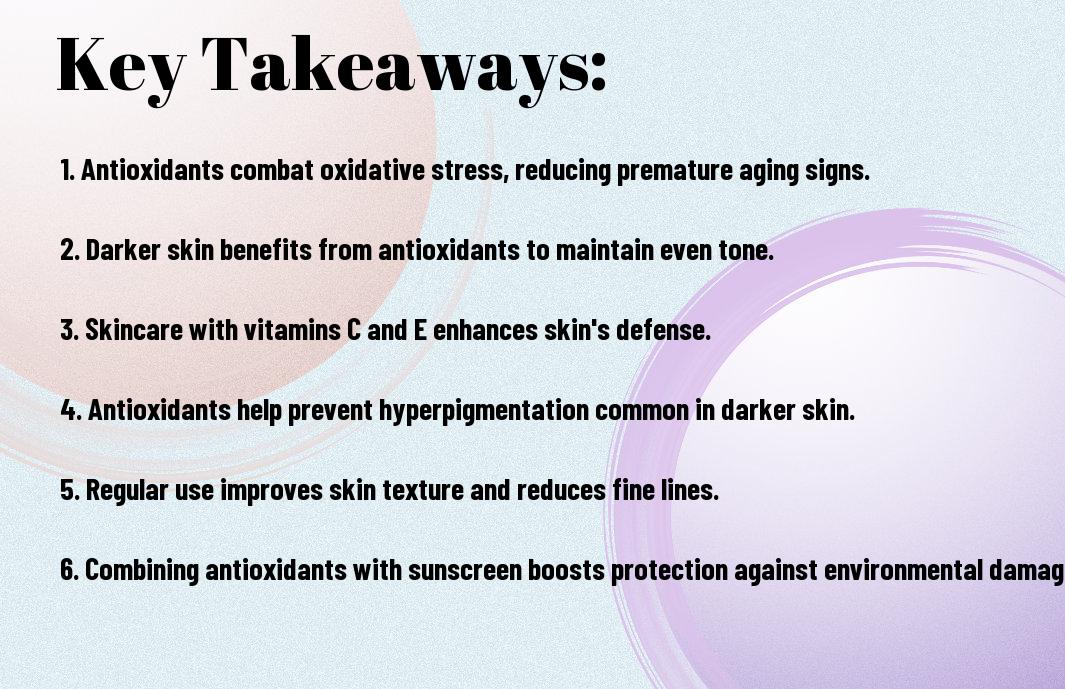
The Biochemistry of Aging: How Skin Reacts Differently in Darker Tones
The aging process in skin varies not only by age but also by skin tone. Darker skin tones possess more melanin, which provides some inherent protection against UV damage, slowing down certain signs of aging compared to lighter skin. However, the biochemistry of aging reveals that darker skin may exhibit different responses to environmental stressors. For instance, while the protective role of melanin can delay the visible effects of aging, the underlying biochemical processes—like the decrease in collagen production—still contribute to overall skin degradation over time.
The Role of Melanin in Skin Aging
Melanin plays a significant role in the aging process of darker skin by providing a natural barrier against UV radiation and oxidative stress, which can accelerate aging. As a protective pigment, it absorbs harmful rays and neutralizes free radicals. This property often results in a slower appearance of fine lines and wrinkles compared to lighter skin tones, which possess less melanin. However, as I research deeper into the aging process, I can’t overlook that melanin can also lead to uneven skin tone changes as we grow older, with hyperpigmentation becoming more prominent.
Unique Aging Indicators in Darker Skin
Aging in darker skin manifests uniquely compared to lighter skin, with specific indicators such as hyperpigmentation, irregular texture, and a “dull” appearance. While fine lines may appear later, skin discoloration can often occur earlier, making a person look older than their age. Other common signs include a loss of radiance and elasticity, which can be more pronounced due to the higher prevalence of oiliness in darker skin. Addressing and understanding these unique aging indicators is vital for choosing the right skincare products to promote a youthful appearance.
These unique aging indicators in darker skin stem from a combination of genetic factors, environmental exposure, and lifestyle choices. Hyperpigmentation, often caused by sun exposure or inflammation, can create a patchy look that may be mistaken for age spots. Additionally, the thicker dermis in darker skin can lead to a tougher texture but can mask subtle signs of aging until they are more pronounced. Moreover, dehydration and loss of moisture can contribute to a lack of luster. Thus, understanding these unique characteristics not only informs our skincare choices but also reminds us to embrace the beauty inherent in our skin tones.
Antioxidants: The Skin’s Natural Defense Against Oxidative Stress
Oxidative stress poses a significant challenge to skin health, especially as we age. This imbalance between free radicals and antioxidants leads to cellular damage, resulting in premature aging signs like fine lines and uneven skin tone. Antioxidants play a vital role in combating this stress by neutralizing free radicals. By incorporating antioxidant-rich products into your skincare routine, you can empower your skin to better resist damage and maintain its youthful appearance.
How Antioxidants Combat Free Radicals
Free radicals are unstable molecules that can wreak havoc on your skin by damaging collagen, elastin, and other important components. Antioxidants neutralize these harmful molecules through chemical reactions, effectively stabilizing them and preventing further damage. The result is a reduction in oxidative stress and a boost to your skin’s defenses, ultimately leading to a healthier, more radiant complexion.
Key Antioxidants for Enhancing Skin Health
Several key antioxidants stand out for their skin-enhancing properties, including vitamin C, vitamin E, and green tea extract. Each serves a unique function in protecting your skin. For example, vitamin C not only fights free radicals but also promotes collagen production, while vitamin E helps to moisturize and heal the skin. Green tea extract, rich in polyphenols, provides anti-inflammatory benefits, making it an excellent choice for protecting darker skin tones.
Incorporating these antioxidants into your skincare regimen can significantly enhance your skin’s health. Vitamin C, known for its brightening and rejuvenating effects, can reduce hyperpigmentation and improve skin tone, especially in darker skin tones that are more prone to discoloration. Vitamin E’s moisturizing abilities help maintain hydration while reinforcing the skin’s barrier function. Meanwhile, green tea extract not only protects against environmental damage but also soothes inflammation and redness. By leveraging these powerful ingredients, you can create a skincare routine that nurtures your skin while actively preventing premature aging.
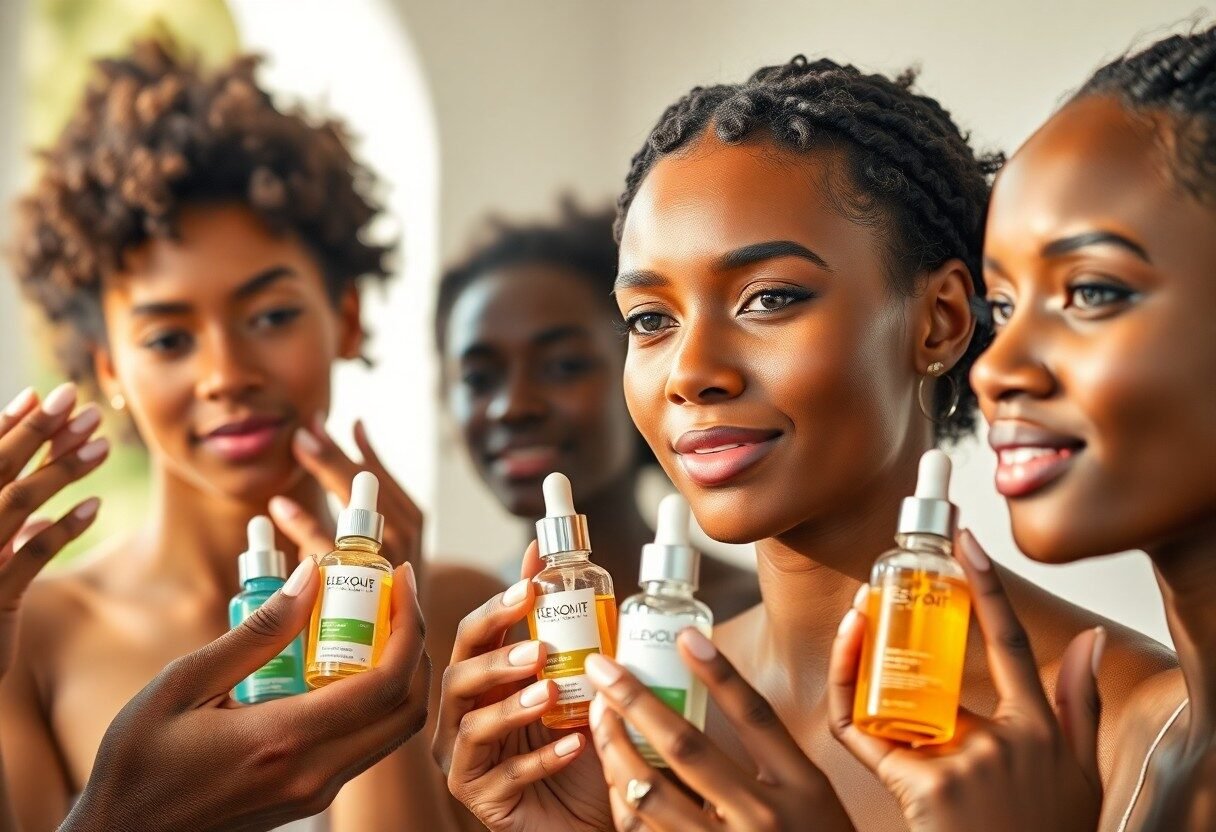
Selecting the Right Antioxidant-Rich Products for Darker Skin
Choosing antioxidant-rich skincare products tailored for darker skin requires a keen understanding of ingredients and formulations. Look for products designed to target hyperpigmentation, uneven skin tone, and oxidative stress. Ingredients that align with the unique needs of melanin-rich skin include vitamins C and E, ferulic acid, and coenzyme Q10, ensuring that your skincare routine effectively counters premature aging.
Must-Have Ingredients to Look For
Focus on antioxidants like vitamin C, which brightens the complexion and evens out skin tone, and vitamin E, known for its hydrating properties and protection against UV damage. Additionally, ferulic acid improves the stability and efficacy of other antioxidants while providing added photoprotective benefits. These ingredients are imperative for maintaining skin integrity and vitality.
Formulation Considerations for Optimal Absorption
When dicking out antioxidant-rich products, their formulation plays a pivotal role in how well these actives penetrate the skin. Water-based serums often allow for better absorption than creams, while oil-based formulas can also enhance the delivery of fat-soluble vitamins. Seek products with a pH balance that complements your skin’s natural acidity, as this ensures that the antioxidants remain stable and effective.
Opt for serums that contain liposomes or nanosized particles, as they can facilitate deeper penetration into the skin layers. Formulators increasingly use advanced delivery systems that mimic the skin’s lipid barrier to enhance absorption. For example, products that combine antioxidant ingredients in a hyaluronic acid base not only support hydration but also assist in the targeted delivery of active compounds. This optimized absorption is especially relevant for darker-toned skin, which can benefit from deeper treatment against oxidative stress and aging signs.
Implementing an Antioxidant-Centric Skincare Routine
Integrating antioxidant-rich products into your daily skincare regimen can significantly enhance your complexion while combating premature aging. Start by selecting serums or moisturizers that contain potent ingredients like vitamin C, green tea extract, or coenzyme Q10. Apply these products in the morning to protect your skin from free radicals encountered throughout the day. For added benefits, layer on a broad-spectrum sunscreen with at least SPF 30 to shield your darker skin tone from harmful UV rays that can exacerbate signs of aging.
Steps to Incorporate Antioxidants Effectively
Begin with a gentle cleanser to remove impurities, then apply a hydrating toner to prepare your skin for maximum absorption of antioxidants. After that, apply your antioxidant serum, focusing on areas prone to aging. Follow this with a nourishing moisturizer to seal in the benefits of the serum and finish with sunscreen. Consistency is key, so aim to use these products daily for optimal results, reapplying sunscreen every two hours if exposed to sunlight.
Common Mistakes to Avoid When Using These Products
Avoid layering too many products simultaneously or using excessively high concentrations, as this can irritate your skin and lead to breakouts. Overwashing can strip away the skin’s natural oils, hindering the effectiveness of your antioxidant products. Being mindful of expiration dates is also important—expired ingredients lose potency, reducing their protective benefits.
Underestimating the impact of skin type and climate is another frequent misstep. Darker skin tones may react differently to certain formulations, making it imperative to choose products specifically designed without harsh chemicals. Also, introducing new products too rapidly can overwhelm your skin, causing irritation or allergic reactions. I find it beneficial to patch-test new products before applying them fully to ensure they suit your individual skin needs.
The Impact of Environmental Factors on Skin Aging in Diverse Complexions
Environmental factors play a significant role in skin aging, and this impact can vary across different complexions. Pollution, UV exposure, and climate conditions can accelerate the aging process and contribute to common skin issues. Antioxidants in skincare products are vital to combating these stressors. A tailored approach that considers your unique skin tone and environmental factors will help maintain youthful skin. Assume that addressing these factors will provide you with a healthier complexion and prolonged skin vitality.
- Environmental factors contribute to skin aging.
- Pollution causes oxidative stress on the skin.
- Adapt skincare routines based on complexion.
- UV exposure increases skin damage risks.
- Use antioxidant-rich products to protect your skin.
Urban Pollution and Its Effects on Darker Skin
Urban pollution exposes all skin types to harmful toxins that worsen the aging process. For those with darker skin, pollutants can exacerbate problems like hyperpigmentation and uneven skin tone. The buildup of toxins leads to oxidative stress, which can age the skin prematurely. Incorporating products with detoxifying agents and antioxidants can help combat these effects. Assume that a proactive approach can significantly improve your skin’s resilience and appearance.
Sun Exposure: Myths and Truths for Darker Skin Types
Many people believe that darker skin types do not require sun protection, leading to lifelong exposure without adequate defense. While darker skin has more melanin and offers some natural protection against UV radiation, it is still susceptible to sun damage and aging. I’ve seen firsthand how vital it is to wear sunscreen daily, regardless of your complexion. Sun damage can manifest as dark spots, premature wrinkles, and an uneven tone. Assume that protecting your skin from UV rays is a vital step in maintaining youthful skin.
| Myth | Truth |
| Darker skin does not need sunscreen. | All skin types require sun protection. |
| Sun damage is less visible on darker skin. | Damage occurs internally, affecting skin health. |
| Only fair skin burns in the sun. | Darker skin can still experience UV damage. |
| SPF 15 is sufficient for all. | A higher SPF is ideal for prolonged exposure. |
Understanding the myths surrounding sun exposure in darker skin types is key to preserving your skin’s integrity. Many individuals think that increased melanin equates to complete sun protection, but this is not true. Daily use of a broad-spectrum sunscreen can help prevent pigmentation issues and skin cancer, particularly in cities with high sun exposure. I encourage you to educate yourself on safe sun practices to support long-term skin health. Assume that proactive sun protection will enhance your skin’s resilience against aging.
- Sun protection is vital for all skin tones.
- Daily sunscreen prevents premature aging.
- Education on myths is crucial for skin health.
- Broad-spectrum SPF protects against UVA and UVB rays.
- Proactive sun care promotes youthful appearance.
| Fact | Impact |
| Darker skin absorbs UV better. | Can delay visible signs of aging. |
| SPF of 30 is standard. | Protection level is vital for all. |
| Effects of sun cumulative. | Increases future skin damage risk. |
| Melanin-rich skin is often neglected. | Skincare neglect can lead to serious issues. |
| Anti-aging begins with prevention. | Early care leads to healthier skin over time. |
Summing up
Hence, I believe incorporating antioxidant-rich skincare products into your routine can significantly benefit the health and appearance of your skin, especially if you have a darker skin tone. These products help combat oxidative stress and prevent premature aging, allowing you to maintain a youthful glow and vibrant complexion. By being proactive about your skincare, you empower yourself to protect your skin from environmental damage and enhance its natural beauty.
FAQ
Q: What are antioxidants and how do they benefit the skin?
A: Antioxidants are compounds that help protect the skin from damage caused by free radicals, which are unstable molecules that can accelerate the aging process. They neutralize these free radicals, reducing oxidative stress, which can lead to issues like wrinkles, dark spots, and loss of elasticity. By incorporating antioxidant-rich skincare products, individuals can support their skin’s health and improve its appearance.
Q: Why is antioxidant-rich skincare important for darker skin tones?
A: Darker skin tones tend to have more melanin, which provides some natural protection against sun damage. However, they are still susceptible to oxidative stress and signs of premature aging. Antioxidant-rich skincare can help enhance the natural barrier provided by melanin, addressing issues such as hyperpigmentation and uneven skin tone while promoting overall skin health.
Q: Which ingredients should I look for in antioxidant skincare products?
A: When searching for antioxidant-rich skincare products, consider ingredients like vitamin C, vitamin E, green tea extract, niacinamide, coenzyme Q10, and ferulic acid. These ingredients not only fight free radicals but also provide additional benefits such as brightening and improving skin texture, making them great options for preventing premature aging in darker skin tones.
Q: How often should I use antioxidant-rich skincare products?
A: For best results, use antioxidant-rich products daily as part of your morning and evening skincare routine. Incorporate serums or moisturizers containing antioxidants in your regimen, and always follow up with sunscreen during the day, as UV exposure can deplete antioxidants in the skin.
Q: Can antioxidant-rich skincare help with specific concerns like hyperpigmentation?
A: Yes, antioxidant-rich products can be particularly effective in addressing hyperpigmentation, a common concern for individuals with darker skin tones. Ingredients like vitamin C and niacinamide can brighten dark spots and even skin tone while simultaneously protecting the skin from further damage, promoting a healthier and more balanced complexion.
Q: Are there any potential side effects of using antioxidant-rich products?
A: Generally, antioxidant-rich skincare products are safe for most skin types. However, some individuals may experience irritation or allergic reactions to certain ingredients. It is advisable to perform a patch test before fully incorporating a new product into your routine. If any irritation occurs, discontinue use and consult a dermatologist for personalized advice.
Q: Can I combine antioxidant products with other skincare ingredients?
A: Absolutely! Antioxidants can be effectively combined with other active ingredients. For example, pairing vitamin C with hyaluronic acid can enhance hydration while providing antioxidant benefits. However, it’s important to introduce new products gradually and observe how your skin reacts, especially when layering products with potent actives, to avoid potential irritation.
